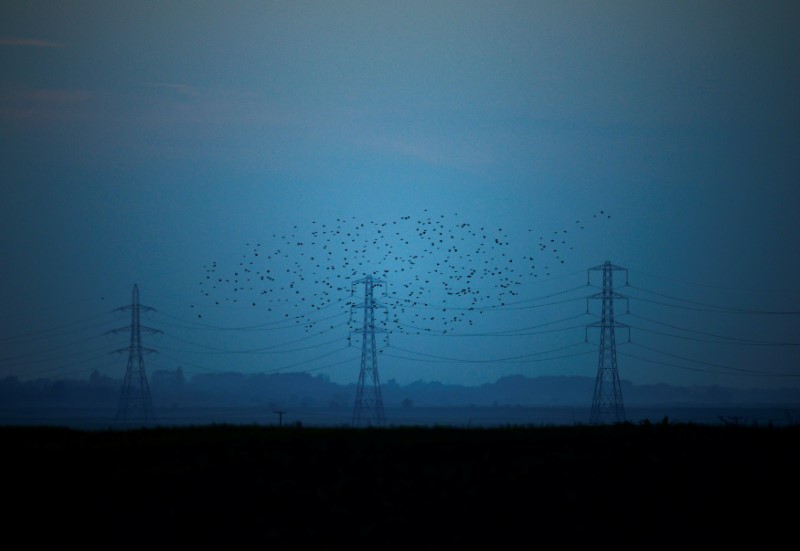LONDON (Reuters) - Britain secured backup electricity capacity for 2020/21 within a 20 to 25 pounds per kilowatt (kW)/year range, data on the National Grid (L:NG) auction website showed on Thursday, with contracts for around 52 gigawatts (GW) of electricity awarded.
Britain began capacity auctions in 2014, looking to head off future power shortages as coal plants close and low power prices dissuade investors from building new ones.
Power plant owners are paid to make available back-up electricity at short notice.
The range is also below many analysts' expectations, who forecast the price would be significantly higher than previous auctions, since it sought to procure around 5 GW more capacity.
Back-up electricity is tapped when supply is too low to meet demand, for instance during cold snaps, when renewable energy sources fail to produce enough power, or when thermal power plants have failures.
The range is below the 35-45 pounds level analysts said would likely be needed to help incentivize new gas plant investment in Britain, which the government had said it hoped the auction would spur.
"If new CCGT (combined-cycle gas turbine) plants have been successful, (and able to accept a lower figure) then it would indicate they expect higher profits in the wholesale market in the future," Phil Grant, partner at consultancy firm Baringa Partners said.
The previous two auctions, held in 2014 and 2015, cleared at 19.4 pounds and 18 pounds/kW per year respectively.

National Grid said it expects to publish the exact clearing price at 2000 GMT on Thursday, and a provisional list of the winning bidders on Friday morning.